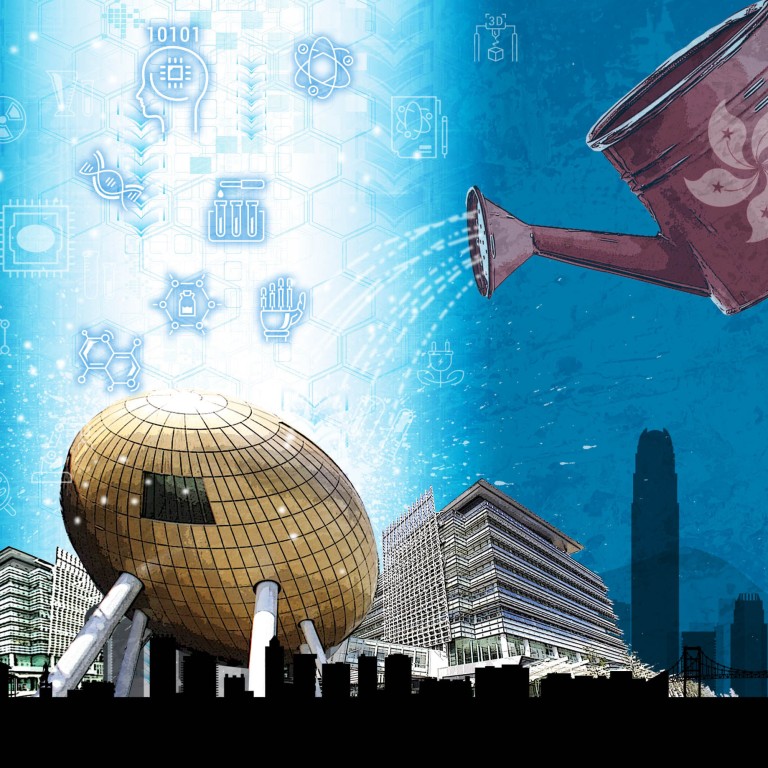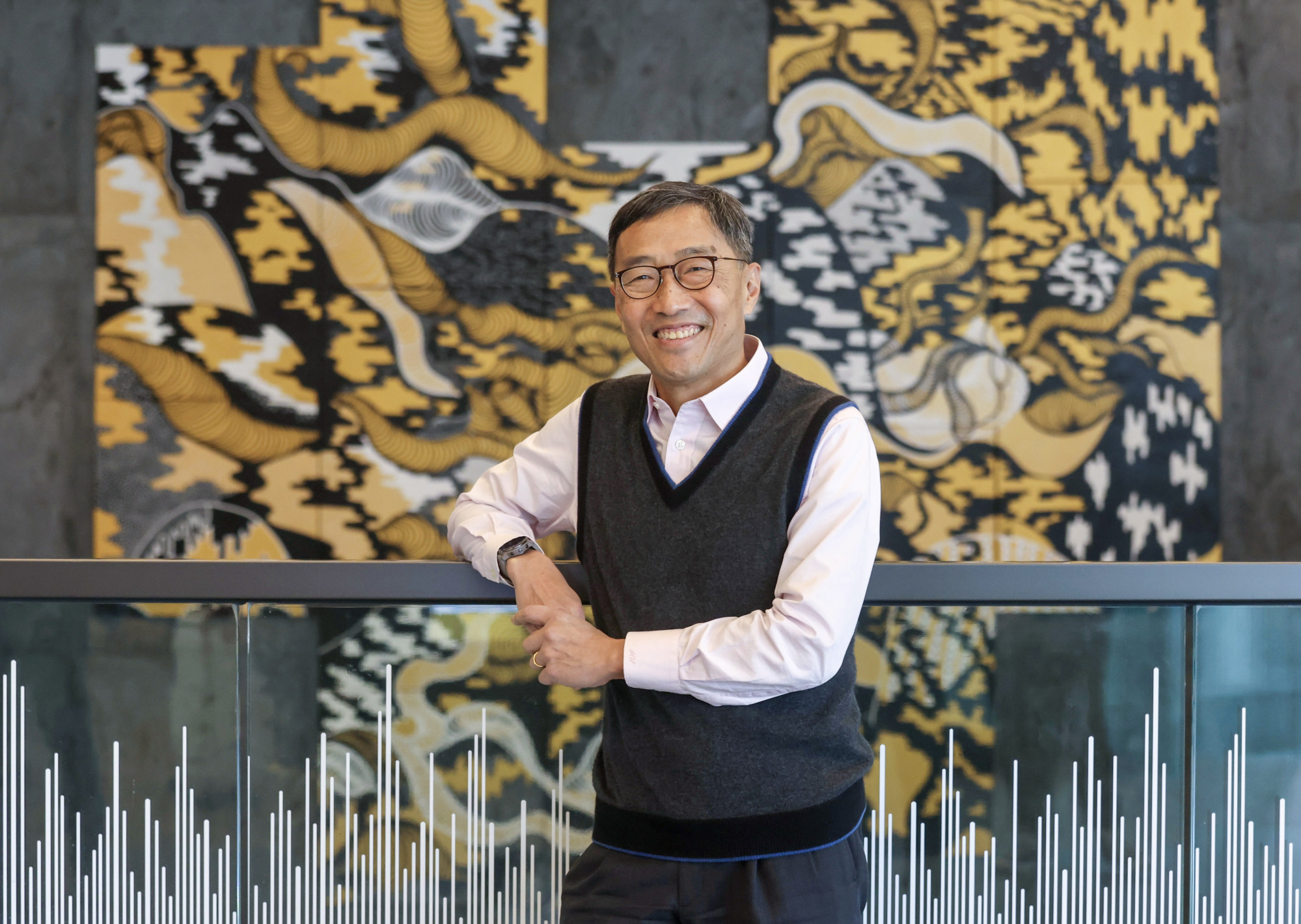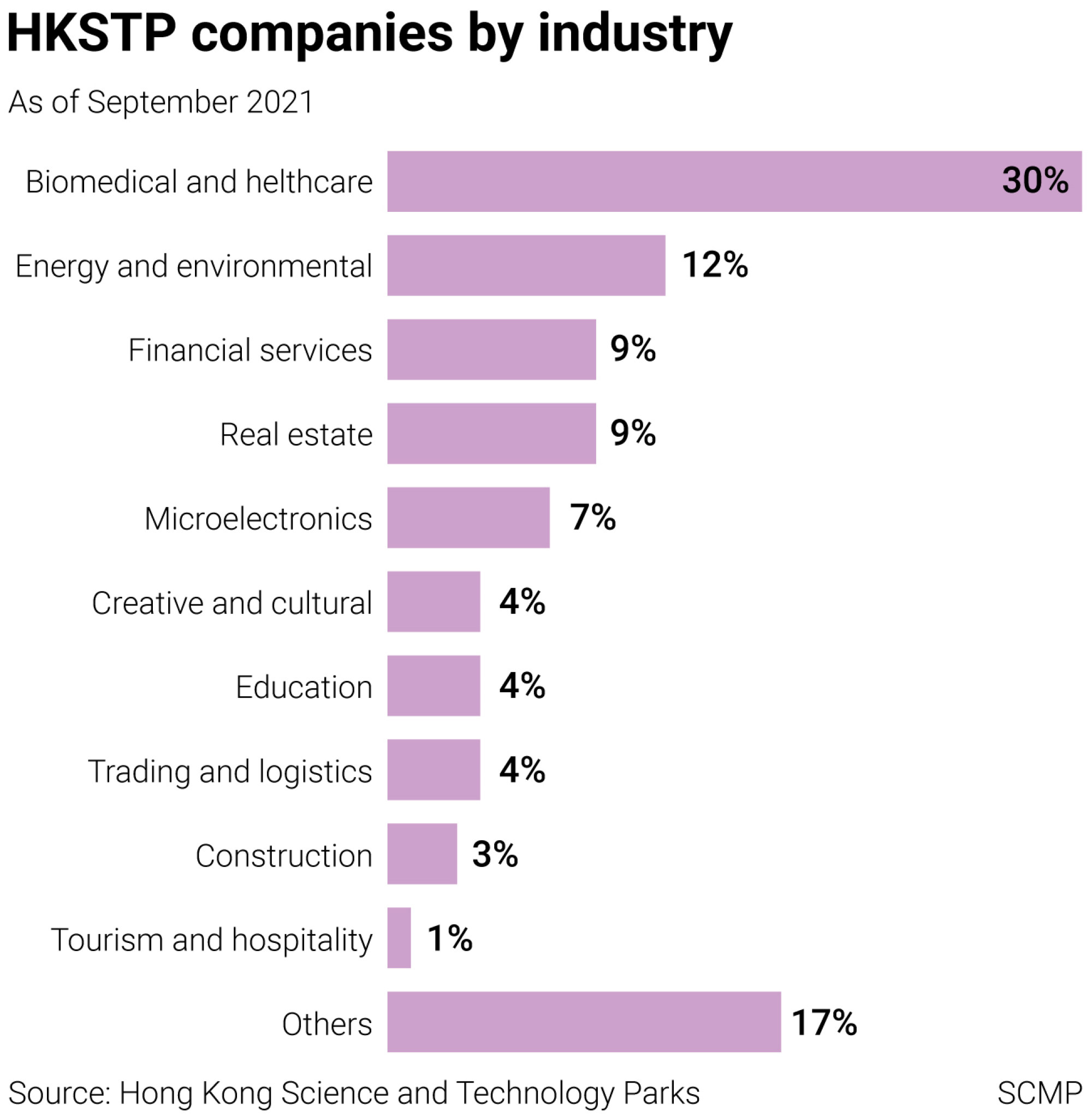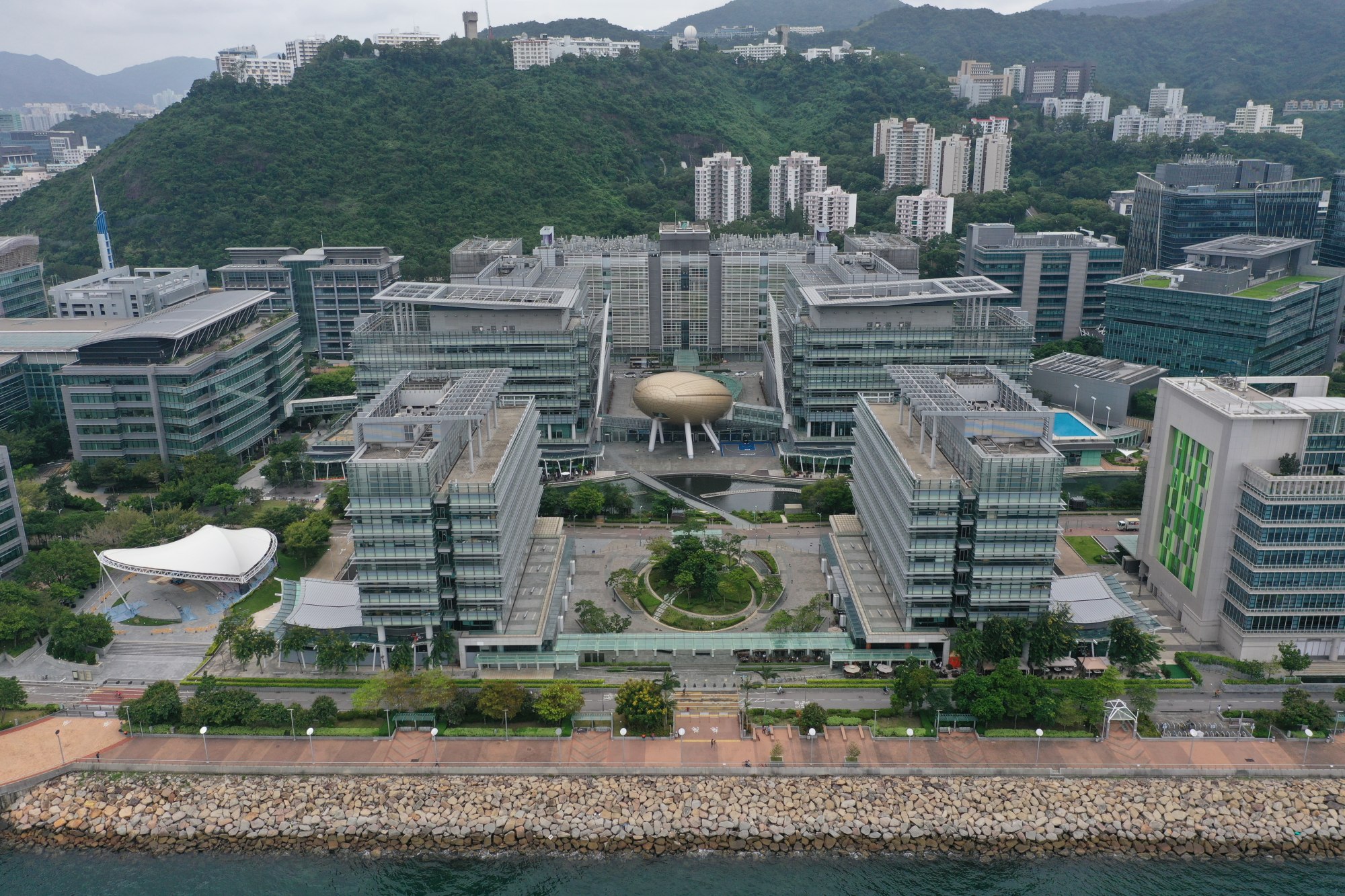
Hong Kong innovation: a peek into John Lee’s secret weapon to outrace Shenzhen and Singapore in technology development
- Hong Kong’s incubator aims to grow from 1,200 to 6,000 start-ups within a decade, dispelling the myth that the city is an innovation desert
- ‘We need to attract global and local talent, attract global enterprises, and grow our local start-ups,’ says CEO of park that spawned AI firm SenseTime
Albert Wong Hak-keung had to stick to his guns when he took over as CEO of the Hong Kong Science and Technology Parks (HKSTP) about six and a half years ago. With more than 30 per cent of the space at the technology-incubator campus sitting empty, Wong stood by a policy that turned away potential tenants unless at least half of their team members were dedicated to research and development (R&D) – a stand designed to protect the park’s identity as a home for technology companies.
“It was not easy to enforce it while there were many empty buildings and spaces in front of you,” Wong said in an interview with the South China Morning Post. “But after these years, tech companies recognise the park as the technology industry cluster. When start-ups and investors look for tech companies, they will come here.”
Today the Hong Kong Science Park boasts more than 1,200 start-ups and has spawned a few listed companies. Occupancy is close to 90 per cent, and Wong’s calendar is jammed with meetings with investors, interviews with start-ups and overseas trips.
However, the current level of success does not fulfill the vision of the 20-year-old park. So Wong is spurring HKSTP to step up its role nurturing innovation, while dispelling the notion that Hong Kong – with the dubious honour as the world’s most expensive urban centre – is a desert for entrepreneurship. The chief executive now wants to grow the roster of start-up tenants to as high as 6,000 over the next 10 years.

HKSTP’s Hong Kong Science Park, located along the Tolo Harbour waterfront on the eastern fringes of the Kowloon peninsula, provides office, production, and R&D space while helping to link investors and start-ups. It helped turn AI specialist SenseTime into a multibillion-dollar listed company, and helped nurture delivery firm Lalamove and advanced manufacturing company SmartMore into tech ‘unicorns’ – start-ups valued at over US$1 billion.
“We are Harvard University, we are MIT [The Massachusetts Institute of Technology],” Wong claimed. “Companies in the park must be of high quality. So we have investors coming here sniffing around opportunities every day.”

“Hong Kong needs to have the weight of 6,000 to 7,000 companies,” he said. “In the next few years, [HKSTP] has to expand on a multiple scale. We need to attract global and local talent, attract global enterprises, and grow our local start-ups.”
With an occupancy rate of 89 per cent, that level of growth could lead to a space crunch for HKSTP.

“That is a good problem,” Wong said. “We will expand the space via various ways such as reclamation. Some people describe us as a landlord. I agree. But we use the income to support and develop the tech ecosystem. After these years, our ecosystem is already taking shape.”
In addition to the science park itself, HKSTP offers large-scale production space in its three Innoparks, in Tseung Kwan O, Yuen Long and Tai Po. It accelerates technological innovation through incubation programmes and assists with commercialisation, building up a technology industry cluster that the city had lacked over the years.
“Hong Kong start-ups are very influential in the biotechnology industry,” Wong said. “[But] how to translate their scientific achievements into commercialised products and grow in the China and global market? This is our role.”
Xi Jinping sees Hong Kong ‘as China’s international I&T hub’
In the past few years, the park has built up a network of private and institutional investors, and has collaborated with more than 200 public and private organisations, such as the Hong Kong Police, to provide opportunities for its 300 plus incubator companies to put their technology to work in real-world applications.
Park-based companies have raised a total of HK$80.2 billion (US$5 billion) since the 2017-2018 financial year. Setting aside SenseTime, that translates to more than HK$40 billion for over 200 companies. “That was a huge number for start-ups,” Wong said.
Amazon cloud’s deal with Hong Kong Science Park seen as vote of confidence in city
“I believe more companies, such as AI and biotech companies, will seek listings in the next couple of years,” Wong said. It has been reported that Beijing-based smart logistics technology company Geek+, has plans to seek an IPO. The specialist in robotics and artificial intelligence opened a global R&D Centre at HKSTP in 2021. Geek+ declined to comment.
The Hong Kong stock exchange’s policies, which allow pre-revenue biotech companies to access international capital and to list, should boost the number of companies considering stock flotations.
Hong Kong’s scale of fundraising for biotechnology is now the largest in Asia and the second largest in the world, with 53 pre-revenue/pre-profit healthcare and biotechnology companies listed in Hong Kong raising about HK$116 billion as of the end of October.
Microsoft partners with Science Park, Cyberport to nurture start-ups
The Hangzhou-based biotech company opened a new research centre in the park on February 17. The first phase of development in Hong Kong includes an operations office and a 10,000 square-foot research laboratory.
“The park has given us some incentives,” said the company’s co-founder and chairman Zhu Yeqing. “But this is not the attraction. We are attracted by the ecosystem in the park, and we believe it is the strategic location for internationalisation.”
Mil Mill, Hong Kong’s science park make breakthrough in moving recycling plant
Wong acknowledges that HKSTP is just a part of a broader government effort to turn Hong Kong into an international innovation hub. “We cannot do it all,” he said.
The government’s policies and the incentives and services offered by the HKSTP together encourage university professors and scientists to turn into entrepreneurs, said Francis Chan, the dean of medicine at the Chinese University of Hong Kong.
But a talent shortage and high housing costs remain as obstacles on the city’s road to being a technology hub, said Chan, who is a co-founder of GenieBiome, a biotechnology company using microbiome research technology to develop treatments, health supplements and tests for a variety of diseases.
He proposed government housing subsidies to help attract more global tenants.

